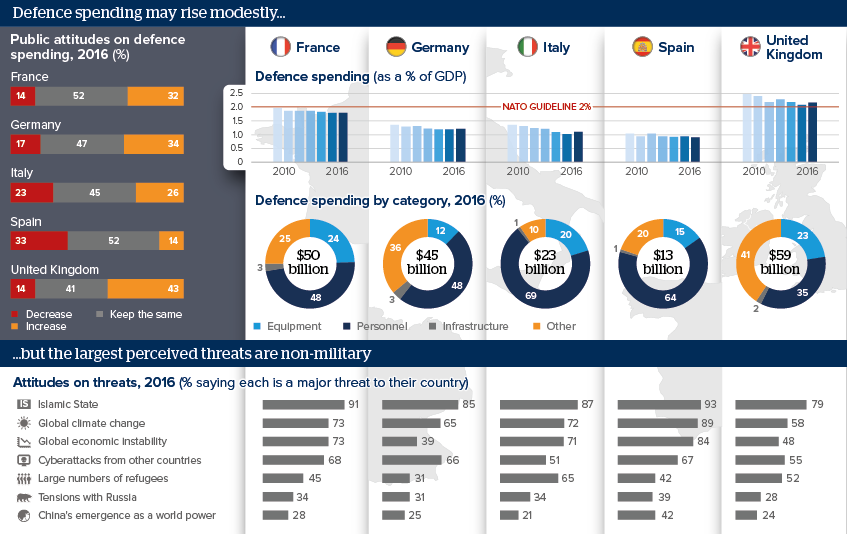Western Europe might embrace wider security concept
Terrorism and climate change appear to be more pressing concerns for many citizens than military aggression
Source: Pew Research Center, NATO
Outlook
Despite Russia’s increasingly assertive behaviour, the largest perceived threats for Western Europeans are non-military. Defence spending is likely to increase modestly over the next years in response to US calls, but large increases are unlikely as public support appears to be weak, especially in Italy and Spain which face large debt burdens.
Instead, governments may highlight the role of non-military spending such as foreign aid and spending on integration measures and deradicalisation programmes in improving security outcomes. This may contribute to the development of a broader, more inclusive definition of security.
Impacts
- Governments may try to use foreign aid more strategically, for example to reduce drivers of migration.
- Spending on cybersecurity will increase and public-private partnerships could become increasingly important.
- Increasing spending on military equipment could be difficult in the short term due to long product development times.
- European defence cooperation and moves towards an EU army will probably intensify after Brexit.
See also
- Defence debate could put pressure on Germany’s Merkel - Aug 10, 2017
- European defence spending may increase modestly - Mar 1, 2017
- More graphic analysis
